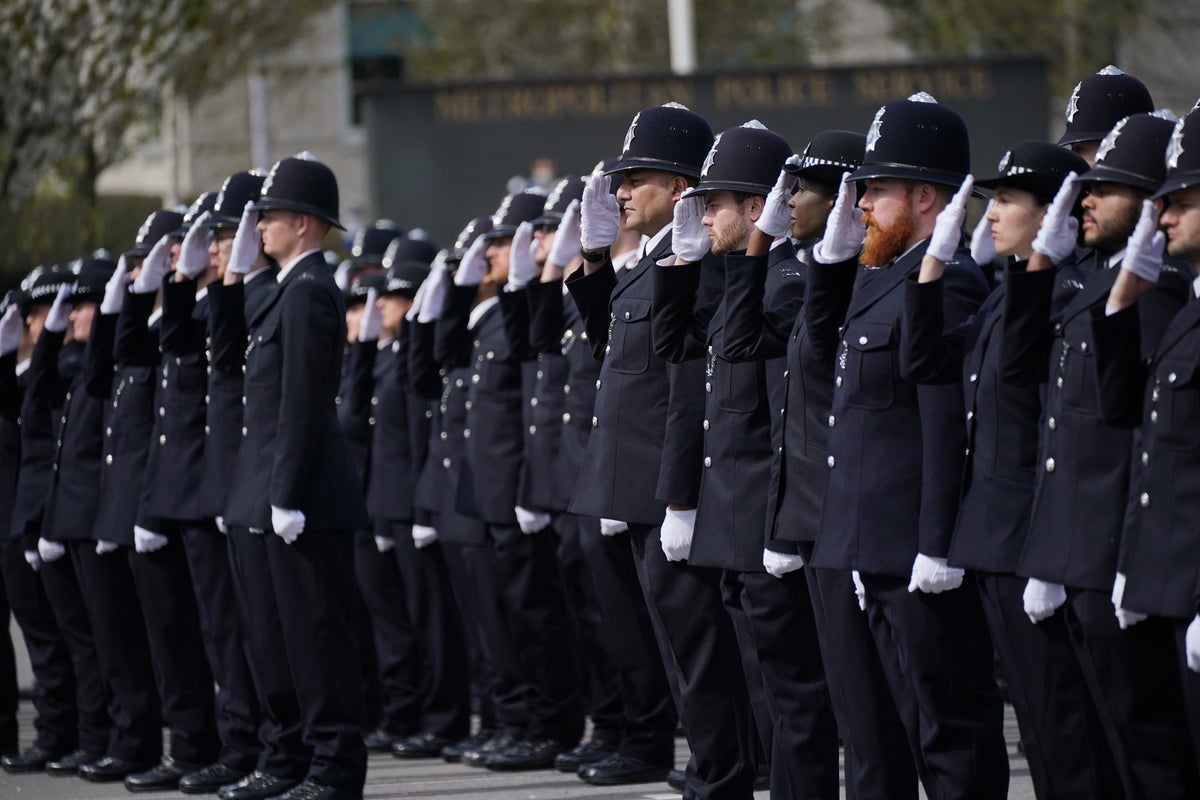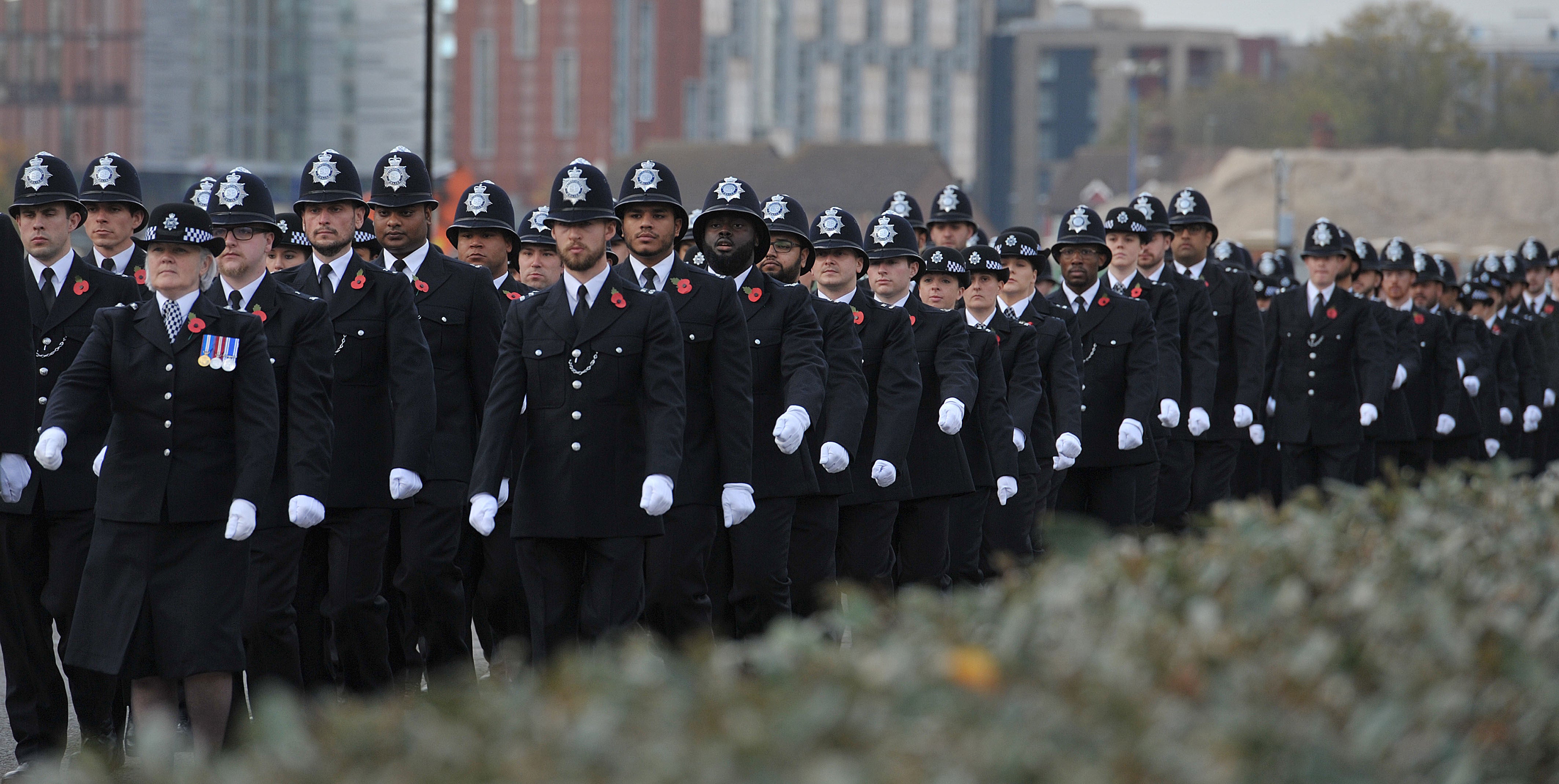
Up to a third of all police officers in England and Wales will be inexperienced constables still in their probation period if the government hits its target of recruiting 20,000 extra constables by March, a report has shown.
The Public Accounts Committee warned that the uplift programme, which was announced by Boris Johnson in his first speech as prime minister in 2019, had “focused on entry level officers rather than those with specialist skills and experience”.
A report published on Friday said that because the government pledged that the 20,000 officers would be “additional” to existing numbers, more than 50,000 had to be recruited over three years to cover for resignations and retirements.
The most recent figures show there are 135,301 officers in England and Wales, meaning the new cohort makes up a significant proportion of the total workforce.
Dame Meg Hillier, chair of the Public Accounts Committee, told The Independent: “The danger is if you go up and down with police numbers and then recruit very quickly, you end up with a larger number of more junior officers, without the experienced people above them.
“As well as this pipeline coming in the front end, you’ve got to channel them through to get the expertise you need.
“There’s been a lot of focus on getting the numbers in the front door, but not much beyond that, and that is an issue.”
The number of recorded crimes have hit a record high and the proportion prosecuted a record low, but the committee found the Home Office could not “draw a direct link between extra police officers and reductions in crime”.
The government admitted that complex crimes like growing numbers of sexual offences and fraud cases would not see a “direct and immediate impact, as [the uplift] was focused on recruiting officers at the entry level whereas crimes such as rape required more experienced officers.”
The report said that around 9 per cent of newly recruited officers are leaving during their two-year probation periods, and the president of the Police Superintendents’ Association said that estimates of the number of new officers needed to end up with 20,000 extra have ranged up to 56,000.
Chief Superintendent Paul Fotheringham said the programme will “nowhere near” replace the police staff lost during austerity, and that there had been an exodus of experienced detectives and specialists over the past decade.
“More than a third of policing is going to have less than three years’ service, which must be a concern in terms of experience, which is why they need to properly train and support the cops coming into the service,” he told The Independent.
“We’ve continually raised the issue of the importance of adequate supervisory levels as part of this – new recruits need senior officers to manage and guide them. We’ve also pushed for this to become part of force inspections.”
Several police officers have raised concerns about a “sea change” in the profile of their forces, telling The Independent that the vast majority of new recruits are in their early teens or twenties, living at home and with little life experience.
The pool of new officers has been narrowed by the requirement for them either to have a degree or study for one during their police training.
“The way we get new police has changed, but not for the better, because it’s not a true representation of our communities when they want everyone to have a degree,” remarked one officer, who did not want to be identified.
Another officer, who trains new recruits in Merseyside Police, voiced concerns that they would use the uplift programme to get “a degree and experience before moving onto a job outside policing”.
The Public Accounts Committee said there were questions over whether it was “necessary or desirable” for all police officers to hold degrees, and whether the “requirement could exclude or deter some from joining the police”.
Police and crime commissioners (PCC) have also spoken of the “challenge” of growing cohorts of new officers.
Festus Akinbusoye, the PCC for Bedfordshire, told a recent press conference the rapid intake was a “great opportunity” for culture change and adapting to new threats.
“But the challenge is where you’ve got a force like mine, a third of the workforce by the end of this year will be in their probation period, and that isn’t unusual,” he added.

“They need managing, mentoring, supervision, training – and it’s a totally different cohort of officers, a totally different lifestyle and worldview. I embrace that, but the challenge is how do you cope with this massive influx of people in a very short period of time.
“There are challenges in maintaining the standard and the quality when you have that many officers coming in.”
Ch Supt Fortheringham said forces must also ensure they are not “rushing people in” without proper vetting, after a watchdog found that the uplift programme had created a “heightened danger that people unsuited to policing may get through and be recruited”.
The Public Accounts Committee warned that hitting the target would be a “challenge” in the final months leading up to the March 2023 deadline, because of more jobs opening up in the wider labour market and policing being made less attractive by declining public trust and confidence.
It said the Home Office had “acknowledged that if increasing numbers of officers left the service, this would in turn increase the number of new officers the programme would need to recruit”.
The report said the Metropolitan Police, which has been rocked by a series of scandals culminating in it being put in special measures, was receiving only half the number of applications it needed to achieve its final year target. It has recently launched a controversial package of “financial incentives” in a bid to boost recruitment.
A Home Office spokesperson said: “We are pleased to see the Committee recognising the success of the manifesto commitment to recruit 20,000 more police officers, with over 13,500 additional officers already recruited in forces across England and Wales.
“We will now review the recommendations provided by the Committee and respond in due course.”







